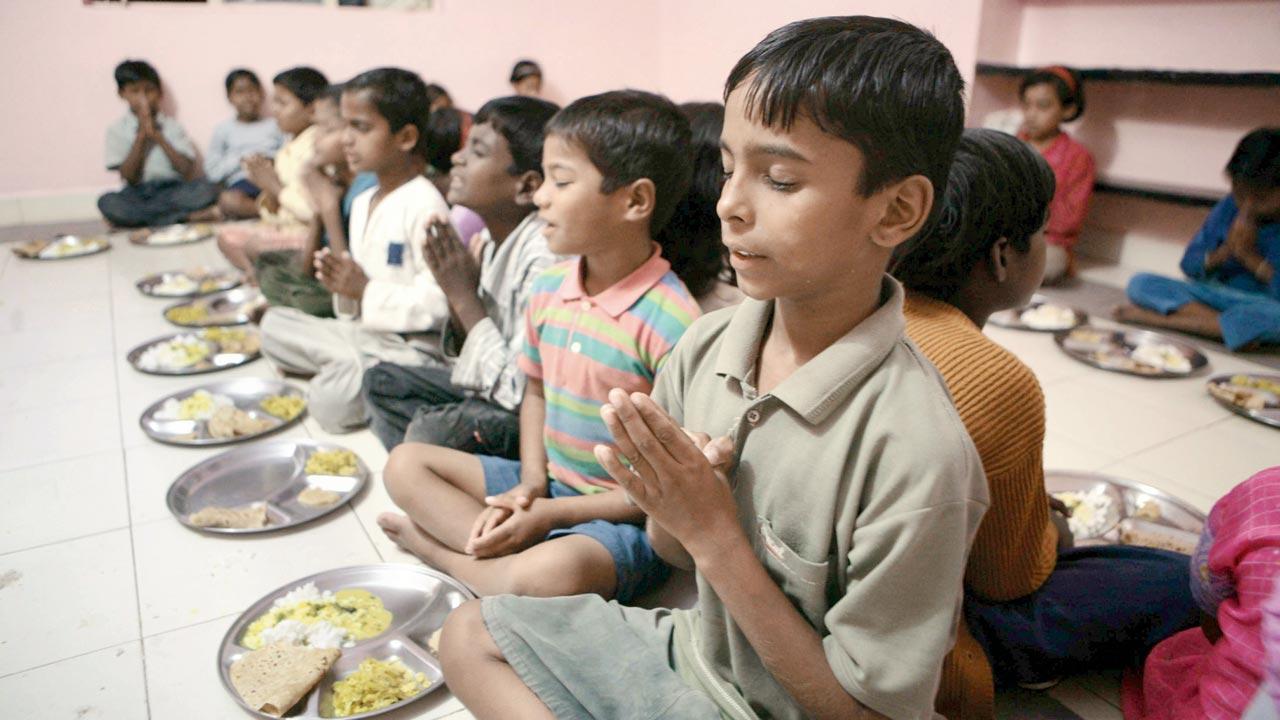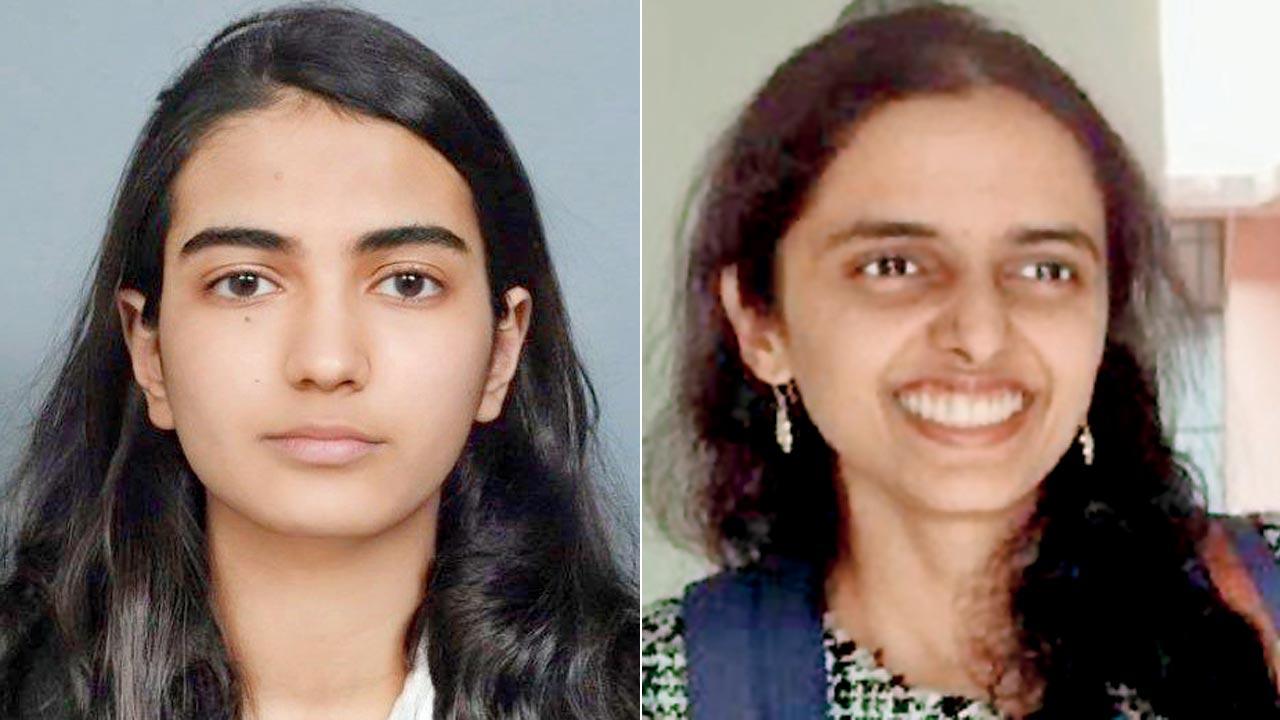A think tank inspects whether kids orphaned by COVID-19 are receiving the care and benefits promised

A file photo of children from Snehalaya Orphanage in Ahmednagar. According to Vulnerable Children of Maharashtra report, most Child Welfare Committees and District Child Protection Units face difficulty in coordination and implementation of Juvenile Justice (Care and Protection of Children Act 2015), due to limited staff, funding and training. Pic/Getty Images
During the second wave of the pandemic, amongst texts of unlikely cures for COVID-19 and inspirational memes on WhatsApp, were pleas for adoption of children orphaned by the lethal disease. This galvanised Vidhi Centre for Legal Policy, a state-based independent think-tank, to study the various initiatives undertaken by the state government to support those who lost their parents. At 20,429, Maharashtra has the second highest number of orphans in the country; The nation-wide number is 1.5 lakh. The state is among the top five in India for children orphaned by COVID-19—788.
ADVERTISEMENT
Titled Vulnerable Children of Maharashtra, the report highlighted that despite strong concern from every quarter, and a dedicated task force in each district to identify and rehabilitate such children, there were discrepancies in providing benefits: The starkest of them being the requirement for proof of COVID-19 mortality, in the form of death certificates. The report by research fellow Sakshi Pawar and Rahela Khorakiwala, a former senior resident fellow at Vidhi, also noted that most Child Welfare Committees (CWCs) and District Child Protection Units (DCPUs) face difficulty in coordination and implementation of Juvenile Justice (Care and Protection of Children Act 2015), due to limited staffing, funding and training. mid-day reached out to the authors of the report (Khorakiwala is now an advocate with the law firm Federal & Company) to understand why these children are not adopted, the status of foster care and why they continue to be discriminated against.
Excerpts from the interview.
Why was the requirement for a COVID-19 death certificate a problem?
Khorakiwala: Most schemes issued during the pandemic required proof of COVID-19 mortality. Sometimes, even if the death was caused by COVID-19, the patient was not tested for it or not taken to the hospital. Sometimes, the hospital did not mention COVID as the cause of death on the certificate. The CWCs and DCPUs had machinery to get the required documentation, but the additional processes caused delays.

Sakshi Pawar and Rahela Khorakiwala
Most adoptive parents say the process in India is tedious. Can something be done?
Pawar: Before placing a child for adoption, CWCs are required to enquire about his/her background. The police assist them to find out whether the child has lost both parents, or if they are runaways or abandoned. Under the Juvenile Justice Act, the timeline to finish the enquiry and place a child for adoption is between two and four months. However, on the ground, the process can take a year. While this brings up the question of efficiency, it’s important to consider that sometimes, a child is adopted, and the parents later come searching for him/her. This happens often. Children have been left around institutions or on streets by families unable to take care of them, but later they come for them. Instead of questioning the process itself, the emphasis should be on increasing resources for CWCs [putting in place speedier processes] and for the police to
conduct inquiries.
What are some of the problems related to the functioning of authorities? How can the system be made more efficient?
Khorakiwala: There needs to be more inter-departmental coordination in the Children in Need of Care and Protection [CNCP] machinery. When a child is orphaned, several bodies come into play—CWCs, DCPUs and Child Care Institutions [CCIs]. They need to work in tandem to rehabilitate the children as soon as possible, and keep the best interest of the child in mind.
However, this is not always a smooth operation. For example, CWCs, who decide where the child should be placed or enquire about his/her status, said that the DCPUs, who help implement their orders, would sometimes not be responsive. However, this could also be due to the bigger problem of low staff, funding, and training limitations. DCPUs say they are understaffed and underpaid. CWCs, on the other hand, also believe that they are not vested with enough powers and have a shorter tenure. They feel that a five-year tenure instead of the current three years would help do justice to their work. These issues require introspection and intervention from an institutional and legal perspective.
One of your findings was that family-based care was preferred over institutional care. What does it say about our society?
Pawar: Although home care and institutional care are both important and should work in tandem, home care is preferable for children over institutions, where there is one caretaker per four to five orphans. The problem arises when systems are not bolstered. For example, DCPUs, who check-up on a child after adoption, can be understaffed. So merely preferring home care, without regularly ensuring the child’s safety is not the best option either. The importance of institutions should also not be undermined—their staff is usually trained and equipped to deal with vulnerable children. However, the institutions or the government should ensure adequate infrastructure not just for the learning and development of young children, but also technical training that must be given to older children to make them self-sufficient.
Community foster care exists in India, but the family foster care system—where parents in the state are identified to temporarily care for CNCPs—is at a very nascent stage.
1.5L
Estimated no. of orphans in India
20,429
Orphans in Maharashtra
788
COVID-19 orphans in Maha
 Subscribe today by clicking the link and stay updated with the latest news!" Click here!
Subscribe today by clicking the link and stay updated with the latest news!" Click here!







